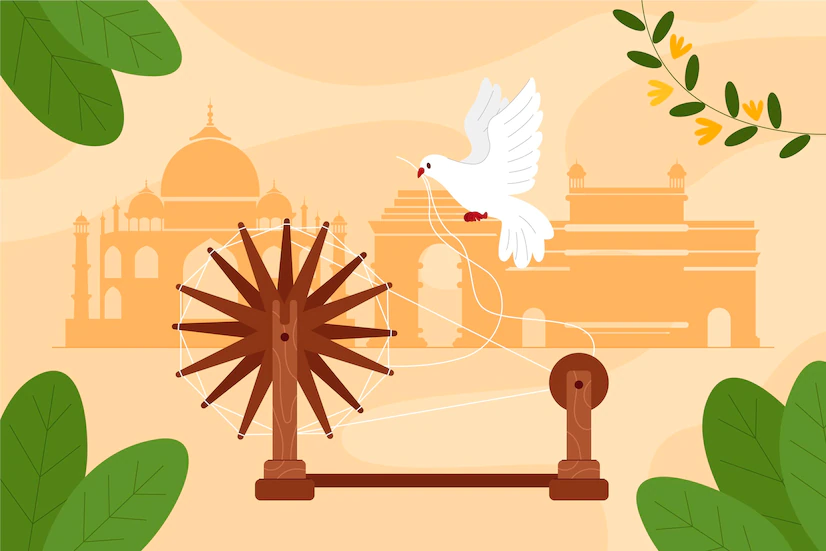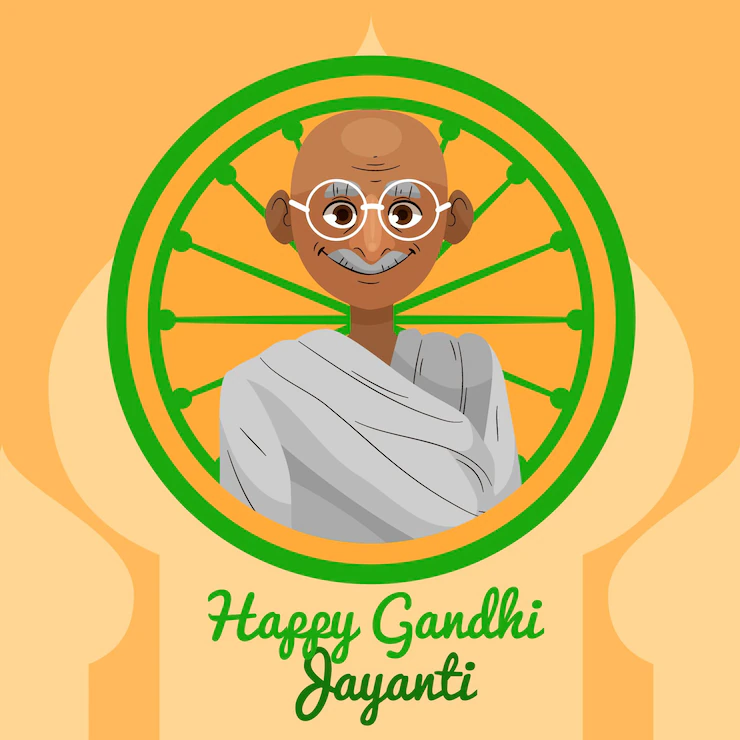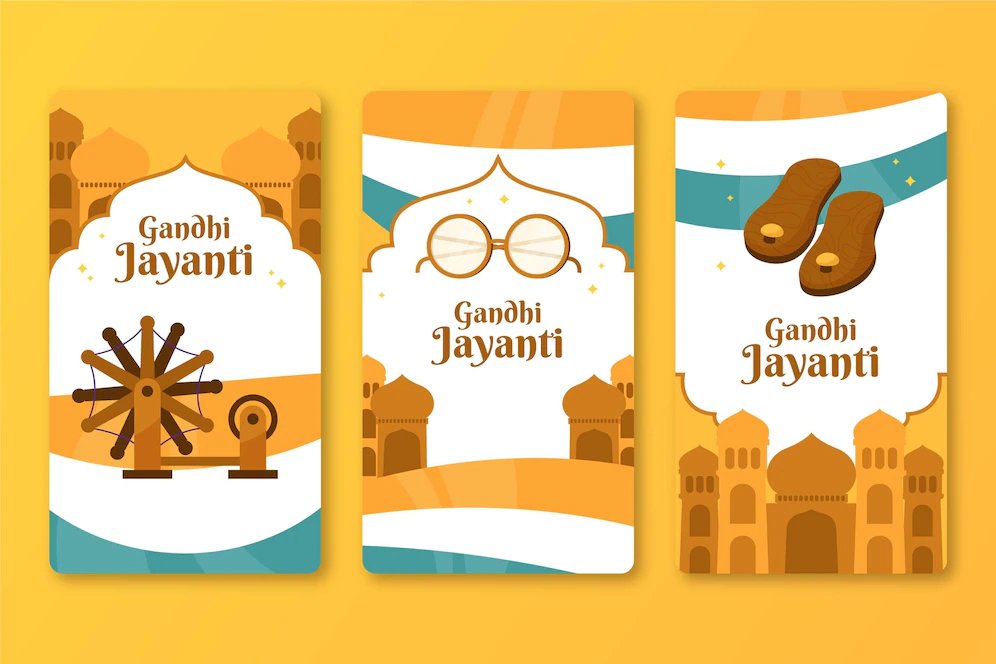Gandhi Jayanti is a national holiday in India. But, what does it really honor? Gandhi is often referred to as the “father of the nation” and 2nd October was chosen specifically as his birthday because of this status. This holiday celebrates the day he was born in 1869.
The day of Gandhi Jayanti was originally celebrated on October 2nd, but it was later moved to the second Monday of October in 1978. The holiday commemorates the birth of Mohandas Karamchand Gandhi on October 2nd, 1869.
This article examines Gandhi Jayanti, the day that honors the life and achievements of Mohandas Karamchand Gandhi, a world leader who strived to end oppression in the 20th century. He is largely remembered for his success in fighting British colonial rule in India with non-violent means.
Gandhi Jayanti is a day of celebration for many people around the world. This year, it falls on 2nd October, but why is this date significant?
What does Gandhi Jayanti mean?
Gandhi Jayanti is celebrated on October 2nd every year to honor the memory of Mahatma Gandhi, who was an influential figure in Indian history. Gandhi Jayanti is a day to celebrate his life and his principles.
Gandhi was a proponent of nonviolent resistance, which he used to fight for India’s independence from British rule. He is also famous for his philosophy of swadeshi, or self-reliance. Gandhi Jayanti is a day to celebrate these principles and to learn about his life and work.
Gandhi Jayanti is a day that is celebrated in honor of the late Mohandas Gandhi, one of the most famous and influential people in history.
Gandhi Jayanti commemorates the anniversary of Gandhi’s birthday, which falls on the first of October each year. The day honors Gandhi’s determination and passion for nonviolent resistance. It is also celebrated as an opportunity to reflect on his teachings and to learn more about his life and work.
One of Gandhi’s most famous quotes is “Be the change you want to see in the world.” His teachings inspired people around the world to fight for social justice. His work has had a lasting impact on the way we view activism and civil rights.
Gandhi Jayanti is a day to celebrate all that Gandhi stood for – his dedication to nonviolent resistance, his commitment to education, and his passion for making the world a better place.

How many days until Gandhi Jayanti, and what is the significance of 2nd October?
Gandhi Jayanti is celebrated on 2nd October every year to honor the memory of Mahatma Gandhi, who was an influential political leader and humanitarian.
The day marks the anniversary of Gandhi’s first successful non-violent protest against British rule in India. The protest, known as the Salt March, took place on 30 April 1930.
Gandhi believed that peaceful resistance was the best way to achieve change and championed the cause of Indian independence from British rule. He is also famous for his philosophy of ahimsa, which means “nonviolence towards all living beings”.
Gandhi Jayanti is a celebration of peace and tolerance, and it is important to remember his lessons of peace and love.
Why do many people celebrate Gandhi Jayanti on 2nd October instead of first day?
Gandhi Jayanti is celebrated on 2nd October to honor the life and work of Mahatma Gandhi. The day marks the anniversary of Gandhi’s birth and celebrates his principles of peace, non-violence, and self-reliance.
Gandhi was a influential leader in India during the early 20th century. He fought for the rights of Indian people and advocated for free speech, human rights, and social justice.
Gandhi Jayanti is also celebrated in many other countries around the world. The day is a reminder of the importance of peaceful protests and nonviolent resistance.
Did you know that Gandhi Jayanti means “the day of blessing”?
Gandhi Jayanti is celebrated on October 2nd every year in honor of the great Indian freedom fighter, Mahatma Gandhi. Gandhi was a revolutionary figure who fought for the rights of Indians and helped to create modern India.
Gandhi Jayanti is known as the “day of blessing” because it was on this day that Gandhi was granted alicense to practice law by the British government. This license allowed Gandhi to fight for the rights of Indians and help to create a free India.
Gandhi Jayanti is also celebrated for its inspirational message. Gandhi believed that everyone has the potential to be great, and that everyone should contribute their unique strengths to society. He taught people to live peacefully and with love for all, even towards those who oppose them.
These teachings have had a lasting impact on India and the world, and are celebrated each year on Gandhi Jayanti.

International Day of Non-Violence 2 October
Gandhi Jayanti is celebrated on October 2nd to honor the life and work of Mahatma Gandhi. The day is also known as the International Day of Non-Violence.
Gandhi was a political leader and philosopher who played a significant role in the Indian independence movement. He is best known for his nonviolent resistance campaign, which aimed to achieve civil rights for India’s minority populations.
Gandhi’s philosophy of non-violence helped to change the course of Indian history. His principles inspired movements around the world, and his example continues to be an inspiration to people today.
Thank you for honoring the life and work of Mahatma Gandhi on October 2nd!
Conclusion
Gandhi Jayanti is celebrated on October 2nd each year to commemorate the life and work of Mahatma Gandhi. The day honors not only Gandhi’s immense contributions to India, but also his belief in nonviolence and passive resistance. Whether you are familiar with Gandhi’s work or not, I hope this article has helped you understand why he is such an important figure in Indian history and what his legacy means today.
Gandhi Jayanti is celebrated on October 2nd each year in honor of the great leader and freedom fighter, Mohandas Karamchand Gandhi. Gandhi was a pivotal figure in the Indian independence movement and helped to bring about social reform in India by using peaceful means. His teachings remind us that through change comes peace, and that we can all make a difference if we work together for a common goal.
Interested in contributing? Write for us and become part of our growing community!



